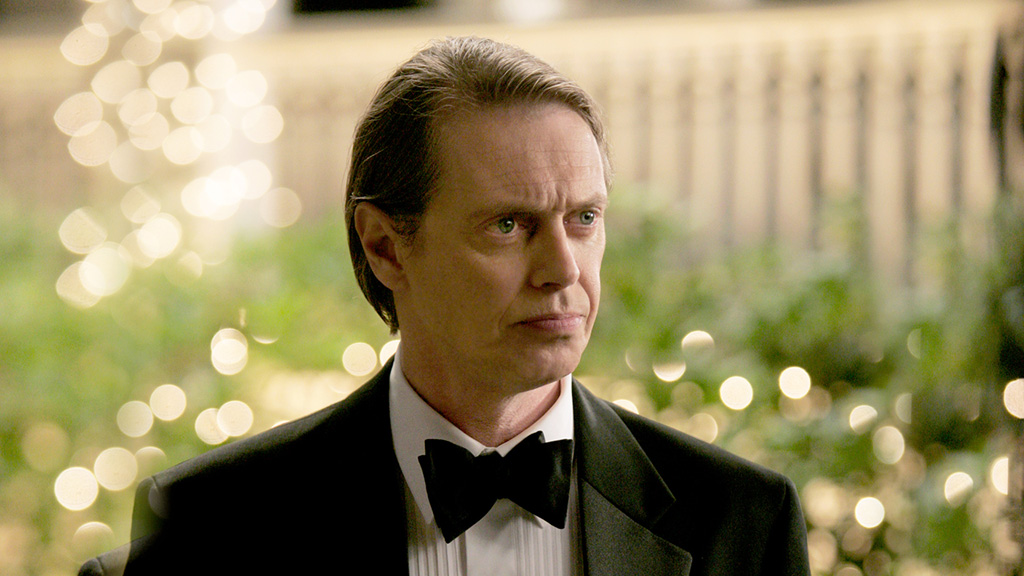There was a moment when, researching for this article, I feared that I had somehow accidentally set the cogs in motion for something very, very bad indeed. Let’s begin.
Steve Buscemi has been a major part of my life for some time. Inexplicably hovering in the background of the majority of films I come across, he is the glue in one of my most major friendships. Like many others, I became obsessed with directors’ preference for killing off Buscemi’s characters in films. Initially rooted in the work of the Coen Brothers, countless others have followed in their stead, unable to resist the urge to kill off Buscemi in increasingly gory and inexplicable ways.
Unwittingly, I began compiling my list of facts for this article, believing that I would bring together some of the actor’s most almighty on-screen expirations. Searching for a chronology of Buscemi’s deaths as I was, I had no idea what I would come across next and how it would make me think of the actor anew. BUSCEMI DEAD AT 53, the first hit read. Having cavalierly typed “Steve Buscemi dying” into my search engine, I feared the very worst, that my flippant question had somehow made the unthinkable happen.
How ironic, I thought, that the actor who dies on screen as a living had now actually died. What must we now do? Of course, we all know that the headline in question was one of a series of death hoaxes, morbidly pushed by internet trolls. And yet, something about this brazen text made me question the very way in which we perceive the actor.
Ever since his death in The Island (in which he shatters through a glass bar), Buscemi has become the butt of many directors’ jokes. The death-rate which he faces has become so high, in fact, that the actor claims when receiving a new script, he flips through to see when his character is killed off. Buscemi has been killed so many times that he has somehow become greater than it. Killing off the man has become so common-place on our television and cinema screens that, were it to happen in real life, nobody would truly believe it had happened.
Shot in The Sopranos, axed and chopped up in Fargo, beaten with a spade in Monsters Inc., Buscemi has faced and lived a rich range of demises. It has become such a cultural running joke that audiences today eagerly anticipate the closing moments of Buscemi’s characters, salivating as if wolves hunting prey. Yet, what makes Buscemi’s part in these deaths all the more entertaining is the fact that the actor is very much alive, very much aware of the part he plays in culture and more than willing to go along with it all. Buscemi is like the grim reaper of Hollywood.
One of his greatest roles is that of the lobby boy in Barton Fink, an infuriating, demonic-like creature from which the eponymous character cannot escape. In the role, Buscemi is greater than death, existing as an anti-human character who inexplicably shrugs off human emotion like a clingy girlfriend. Having died in so many roles before, it now seems as if Buscemi’s task is to exist as a character beyond death, placed in the cinematic narrative to plague others.
Through his sisyphean death-cycle, Buscemi has come out the other side, stronger than ever. Even when we see him dying on-screen, we feel very little because we know that in a few months, he will return again and die in a more inexplicable way. Whilst we must merit the work of Buscemi as an actor and continue to follow his work, I can’t help wondering, what would we do if it were to happen for real?

